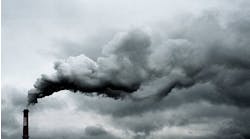Nick BastaBy Nick BastaThe chemical industry gets more than its share of brickbats. However, I expect historians years from now to shower one industry initiative with praise that borders on amazement: the Responsible Care program. Responsible Care originated with the Canadian Chemical Producers Association (CCPA), Ottawa, Ontario, was brought to the world stage by the American Chemistry Council (ACC), Arlington, Va., and has elements now embodied in international standards like ISO 14001. At its heart, Responsible Care is a commitment to objectively assess current manufacturing practices, strive for continuous improvement of them, and produce a scorecard for the public to evaluate.CCPA is readying a 20th anniversary revision of its standard for next year. The program originally was launched as a response to the risks highlighted by the 1984 chemical release in Bhopal, India, that killed thousands. In the United States, Responsible Care began in 1988. What might be called second-generation Responsible Care is about to take effect at the beginning of next year. The programs scope is being expanded to include energy efficiency and product safety, and the establishment of Responsible Care Management Systems (RCMS).All ACC members, collectively representing about 90% of U.S. chemical production, are obligated to comply with Responsible Cares guidelines. The Synthetic Organic Chemical Manufacturers Association (SOCMA), Washington, D.C., representing specialty chemical producers, has licensed the Responsible Care program and made it mandatory for its members as well.Along the way, Responsible Care has been expanded in a number of areas, including site security. An ACC subcommittee was working on security guidance at the time of the Sept. 11, 2001, terrorist attack; the group came out with fairly detailed recommendations just weeks afterward. Another significant change in the program is a requirement for third-party auditing of RCMS, which should provide a higher level of accountability.Responsible Care has had its ups and downs and its critics over the years. At various times, ACC has tried to use it as a platform to promote the value of the business of chemistry, its term for the industry. Environmental activists, who, for the most part, never have anything good to say about the industry, have dismissed the program as a public relations ploy.Away from the headlines, Responsible Care-related work goes on quietly and effectively, day after day. Toxic emissions are declining as cleaner technologies are adopted and operations improve. Workplace safety is advancing. We are better prepared to handle emergencies.The impact of having the right systematic approach to environmental and safety concerns can be seen dramatically in terrorism countermeasures. Federal and local agencies like the U.S. Coast Guard and the states of New Jersey and Maryland have borrowed elements of Responsible Care to structure their programs. Department of Homeland Security Secretary Tom Ridge calls Responsible Care a benchmark industrial security program, according to the ACC.The contrast with efforts by other vulnerable industries is telling. The American Petroleum Institute (oil exploration and production), the Edison Electric Institute (power utilities) and the American Gas Association (natural gas transportation and delivery) started up security-related committees after Sept. 11, 2001, and issued security guidelines a year or two later. Enforcement or simply review of security measures primarily rests with various federal agencies. All measures appear to be voluntary, to be adopted at members discretion. The larger parts of Responsible Care, such as developing RCMS-type programs, reporting progress to the public, and striving for continual improvement, are lacking. (Of course, many individual companies in those industries are improving security and environmental performance. And API, for example, published updated site-vulnerability assessment guidelines last year.) Even if, as some argue, Responsible Care started as a defensive action in the post-Bhopal period because the industry realized it must do something, and quickly, to head off an avalanche of regulation the continuing evolution of the program, with its mandatory compliance and auditing features, is remarkable. At this point, the economically beleaguered, much maligned chemical industry is leading all manufacturers in managing risks to safety, security and the environment. Nick Basta is editor at large for Chemical Processing magazine. E-mail him at [email protected].

Latest from Environmental Health & Safety
Latest from Environmental Health & Safety
